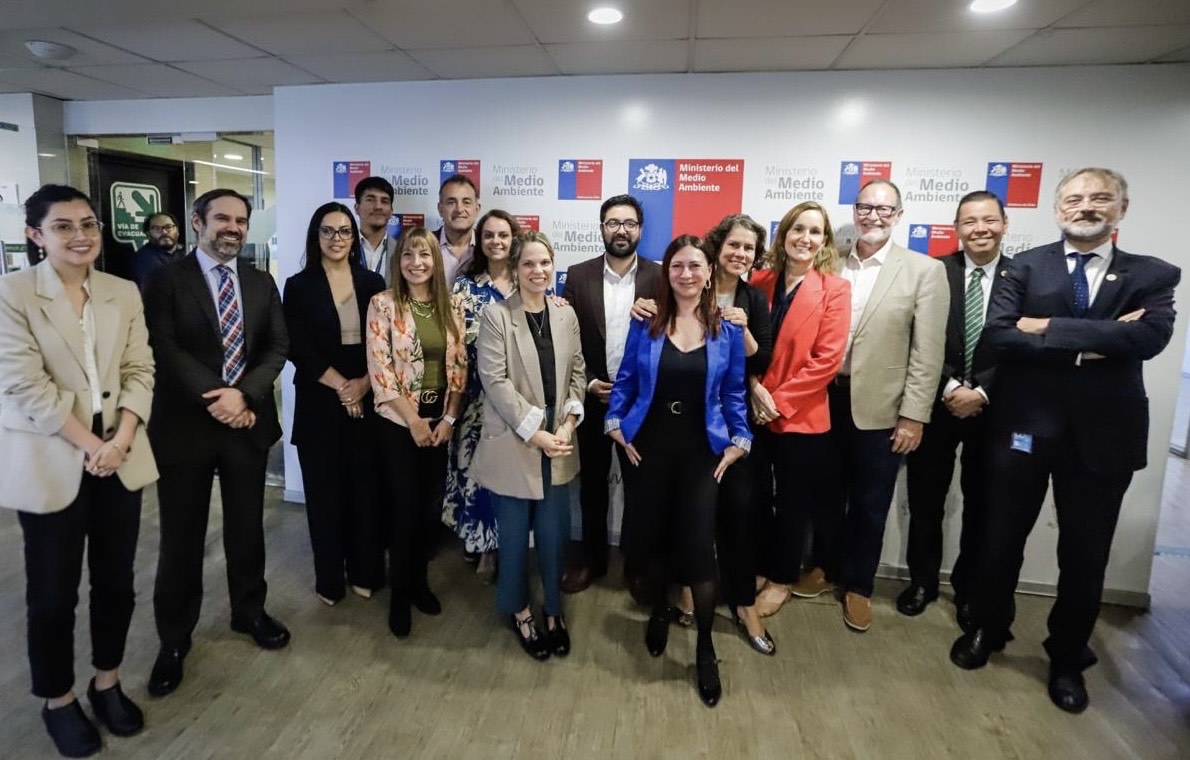The Committee to Support Implementation and Compliance of the Escazú Agreement concludes its visit to Chile and highlights the country's firm commitment to the implementation of the Escazú Agreement
Work area(s)
Topic(s)

The Committee to Support Implementation and Compliance of the Escazú Agreement, within the framework of its function of consultation and dialogue with the Parties, visited Chile from November 4 to 8, 2024, reinforcing the country's commitment to the full and effective implementation of the Escazú Agreement.
During the 5-day visit, the Committee held 12 meetings with various public institutions in Chile with competence over environmental matters, including the Ministry of the Environment, authorities of the Supreme Court, ministers of the country's three environmental courts, authorities of the Environmental Assessment Service (SEA), authorities of the Superintendency of the Environment (SMA), representatives of the Registry of Emissions and Transfer of Pollutants (RETC), among others. Likewise, a meeting was held with the United Nations Resident Coordinator in Chile and representatives of UN agencies, in addition to three participatory spaces open to the public, both in person and virtually.
It is worth noting that the Committee's itinerary included a visit to the city of Valdivia, in the Los Ríos Region, where meetings were held with regional authorities and institutions as well as with local citizens.
In the closing session of the visit, the Committee highlighted the “firm commitment of the country's authorities and officials to the Escazú Agreement, from its highest authorities to the heads and technical staff, and of the different branches of the State; as well as the firm commitment and work of the public, the people and the citizens, in all their diversity and representativeness.”
The Committee congratulated the country for “being the first State Party with whom the Committee exercises the function of dialogue and visit, within the framework of an official invitation issued to the Committee.”
The Committee also shared a preliminary assessment of the three points of the agreed agenda that guided its visit: (1) Pollutant Emissions and Transfer Registers (PRTRs); (2) early participation in environmental decision-making processes; and (3) access to environmental justice through Environmental Courts. Along with the three topics, the Committee analyzed in a cross-cutting manner the challenges, progress and opportunities related to persons and groups in vulnerable situations.
Regarding the RETC, it reflected that “there is still a need for the data collected to be translated into information that is accessible, understandable and usable by the general public.”
Regarding public participation in environmental decision-making processes, it stressed that it is necessary to move forward in “effectively articulating early participation with existing participation mechanisms”; and regarding access to justice in environmental matters, it pointed out the need to “ensure access to specialized knowledge in all competent jurisdictions, as well as move towards access to specialized technical and legal assistance in environmental matters” among other key messages.
Likewise, in the three topics reviewed, the Committee encouraged the country to strengthen and/or adapt existing mechanisms to the specific needs of persons and groups in vulnerable situations.
Although the Committee concluded its first visit to Chile, the consultation and dialogue process will continue. In this regard, in accordance with its working methods, the Committee will prepare a preliminary report that will be shared with Chile in the coming months, allowing a period of eight weeks for its observations.
Subsequently, the Committee will proceed to draft the final report of the consultation and dialogue, which will include the relevant conclusions and recommendations. In addition, the Committee will periodically follow up on the conclusions and recommendations, ensuring the implementation of the provisions of the Agreement, as well as the recommendations made.
Prior to the visit, a list of topics was drafted and agreed upon between Chile and the Committee (see the agreed agenda here). On September 4, the visit was announced on the website of the Escazú Agreement and the Committee, along with the agreed agenda. Subsequently, and in order to help the Committee prepare for the visit, questionnaires were sent to Chilean public institutions with environmental competence, for a period of 1 month, and a public consultation was opened through an online questionnaire, which was available from September 11 to October 21, 2024.
Finally, the dialogue with the States Parties to the Agreement is periodic and permanent and will be held at least every four years with each one according to the Committee's working methods.
Country(ies)
-
Chile